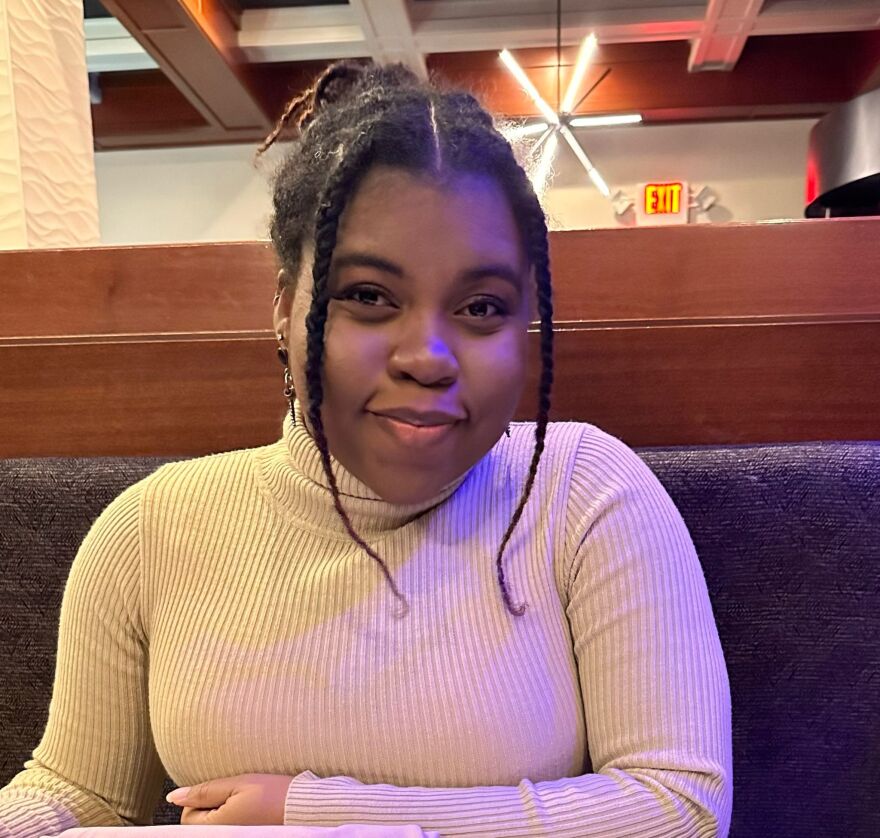Haitians in the Heartland is the result of six months of close collaboration between the Eichelberger Center for Community Voices at WYSO and a group of Springfield residents from Haiti who had been involved in an internet radio station in Springfield called New Diaspora Live.
Katie's story
Virginelle Jerome and Katie have been best friends for as long as they can remember. They both left Haiti and moved to the United States, and after years apart, they were finally able to reconnect. The two women went on a long walk, discussing their migrations to America and the challenges of motherhood. Since Katie doesn't speak English, Virginelle translated their conversation.
Note: Katie is using a pseudonym because she is concerned about what recent policy changes at the federal level will mean for her Temporary Protected Status in the United States.
The following transcript is lightly edited for length and clarity.
Haitians in the Heartland is produced for the ear and designed to be heard, not read. We strongly encourage you to listen to the audio by clicking on the blue "LISTEN" button above, which includes emotion and emphasis not on the page.

Virginelle Jerome: She chose and came up with the name Katie. Though she came here legally, she just felt more comfortable and safe using an alias.
I spent 13 years with Katie because that's when I left Haiti, at 13.
She'd come over to the house; we'd play with our dolls together, color, watch TV, play video games.
It felt really nice to see her and touch her because now we're both mothers.
I felt the need to share Katie's story because a lot of the times, we make decisions for a better living and in the hopes for something better for our kids. I wanted to share how it impacts a child.
I asked her what pushed her to leave Haiti in the first place. And her answer to me was that insecurity was the main reason.
The gun violence is extremely, extremely bad. Schools are always closed. Sometimes, you might go to school and not be able to come back home. You have to basically sleep at some random place, and sometimes you have to ask a neighbor who you may not even be close to you, can you sleep there because you just don't know when they'll hit you.
They literally kidnap anyone and ask for a ridiculous amount of money. Sometimes they'll spare your life after that money has been given, and sometimes that ransom means nothing. They can still kill you. They torture you.
Journey to the United States
Katie then shared with me that her child's behavior changed during the journey to the U.S.. She was screaming. She wouldn't listen. She was just very uneasy because she got removed from her home, her friends, and school, going through all of that in the hopes of having a better life.
And again, me as a new mother now, it broke my heart; it broke my heart hearing how unhappy the child became, how she really didn't want to play anymore. Didn't really want to speak.
And, she did not want to put her child in such hardship if it wasn't for something more rewarding that's promised, if I can say it that way.
And I just wanted people to be aware of the different traumas and experiences that children endure or experience during journeys when their parents decide that, 'okay, we're going to move into the U.S.'
Then I just want people to be aware and see that human side that we all go through.
I later asked Katie if she hopes or dreams to ever be able to go back home to Haiti, and she expressed that even though it's really uncertain how that would happen, she really hopes that one day they all can go back home and give back to our country.
Next week on Haitians in the Heartland, we'll learn more about Katie's family.
Haitians in the Heartland is produced at the Eichelberger Center for Community Voices at WYSO.








